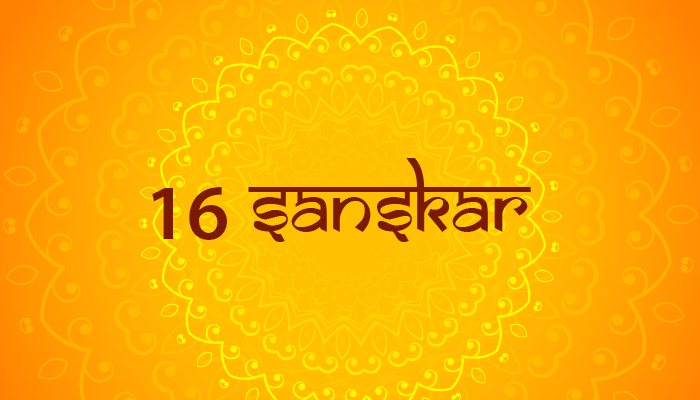In the rich tapestry of Hindu culture, the concept of Sanskars (Samskaras) plays a pivotal role in shaping the spiritual and moral fabric of an individual’s life. Sanskars are essentially rites of passage, marking the journey from birth to death with significant rituals that aim to purify and sanctify the individual’s existence. There are 16 Sanskars in Hinduism, each serving as a milestone that guides a person towards righteousness, fulfilling their dharma (duty), and ultimately aiding in achieving moksha (liberation). Let’s delve into these 16 Sanskars, understanding their importance and significance in the broader context of Hindu philosophy.
1. Garbhadhana (Conception)
This first sanskar is performed to ensure a righteous and healthy progeny. It involves prayers and rituals for the spiritual and physical purity of the parents.
2. Pumsavana (Fetus Protection)
Performed during the third month of pregnancy, Pumsavana seeks the birth of a male child to carry on the family lineage. However, it now symbolises praying for the healthy development of the fetus, regardless of gender.
3. Simantonayana (Hair Parting)
This ceremony, conducted during the fourth, sixth, or eighth month of pregnancy, involves blessings for the mother and the unborn child, focusing on the mental health and well-being of both.
4. Jatakarma (Child Birth)
Performed immediately after birth, this sanskar involves the father whispering the Gayatri Mantra into the baby’s ear, symbolizing the initiation of the newborn into the world with divine blessings.
5. Namakarana (Naming the Child)
Usually performed on the 11th or 12th day after birth, this ceremony involves giving the child a meaningful name, signifying the individual’s unique identity.
6. Nishkramana (First Outing)
Performed in the fourth month after birth, this sanskar marks the baby’s first outing, usually to a temple, symbolizing the introduction to the natural world.
7. Annaprashana (First Solid Food)
Conducted in the sixth month, Annaprashana marks the baby’s transition from liquid to solid food, symbolizing the dependence on the material world for sustenance.
8. Chudakarana (Haircutting)
This ceremony is performed in the first or third year of a child’s life. It involves the first haircut, which signifies the child’s entry into society.
9. Karnavedha (Ear Piercing)
The ear-piercing ceremony is believed to open the inner ears to sacred sounds, protecting against diseases and enhancing the intellect.
10. Vidyarambha (Start of Education)
This sanskar marks the beginning of formal education, where the child is taught to write the first letters, symbolising the start of the journey of knowledge.
11. Upanayana (Sacred Thread Ceremony)
Performed between the ages of 6-16, Upanayana marks the child’s initiation into student life, granting the right to study the scriptures and perform rituals.
12. Vedarambha (Study of Vedas)
This ceremony signifies the commencement of Vedic studies, emphasising the importance of acquiring spiritual and moral knowledge.
13. Samavartana (Graduation)
The completion of formal education is celebrated through Samavartana, marking the transition from student life to householder life.
14. Vivaha (Marriage)
The marriage ceremony is considered one of the most important Sanskars. It unites two individuals and families and ensures the continuation of society and dharma.
15. Vanaprastha (Retirement)
This stage marks the transition from householder life to forest-dweller, focusing on detachment and spiritual pursuits.
16. Antyeshti (Last Rites)
The final sanskar, Antyeshti, involves the rituals performed after death, ensuring the soul’s journey towards liberation.
Conclusion
The 16 Sanskars of Hinduism offer a structured approach to life, guiding an individual through various stages with rituals that purify, sanctify, and elevate one’s existence. These rites of passage not only mark physical and spiritual milestones but also reinforce the communal and familial bonds, weaving the fabric of Hindu society with threads of tradition, duty, and spirituality. In practicing these Sanskars, individuals are reminded of their responsibilities towards themselves, their families, society, and the ultimate goal of achieving moksha, harmonising life’s material and spiritual aspects.
If you want to perform Vidhyarambh Sanskar Puja or any other Sanskar Puja, our expert astrologer from AstroLive is the best choice in India. If you need assistance or have any confusion regarding Puja, you can directly contact us.







